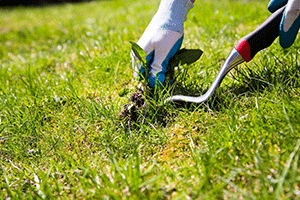Baking soda, a staple in most kitchen cabinets, is widely known for its versatility in cooking, cleaning, and even personal care. But did you know this humble white powder can also work wonders in your garden? Yes, you read that right! Baking soda is known as a game-changer for nurturing your garden and enhancing plant growth. Let's delve into how incorporating baking soda into your gardening routine can yield remarkable results.
Balancing Soil pH
The key benefit of using baking soda in the garden is its ability to balance soil pH levels. Soil pH plays important role in plant growth, as it affects nutrient availability. Most plants thrive in soil that is slightly acidic to neutral. However, over time, soil can become too acidic due to factors such as acid rain, excessive use of fertilizers, or the decomposition of organic matter.
Baking soda acts as a natural pH buffer, helping to neutralize acidic soil and create a more favorable environment for plants to thrive. By sprinkling baking soda around your garden beds or mixing it into the soil, you can raise the pH level and promote healthier plant growth.
Fungal Disease Prevention
Powdery mildew and black spot can wreak havoc on your garden, causing damage to leaves, flowers, and fruit. Baking soda possesses antifungal properties that prevent the onset and spread of these diseases.
To create a natural fungicide, Mix baking soda in a gallon of water and a few drops of liquid soap. Spray this solution onto your plants, focusing on areas prone to fungal infections. The alkaline nature of baking soda provides an environment that inhibits thee fungal growth, effectively protecting your garden from disease.

Weed Control
For gardeners, weeds can be a constant nuisance, as they compete with desirable plants for vital resources such as nutrients, water, and sunlight. Baking soda offers a safer and more environmentally friendly alternative for weed control. Sprinkling baking soda directly onto weeds or in between cracks in paving stones can help desiccate and kill unwanted plants. Additionally, regularly applying baking soda to areas prone to weed growth can help prevent future infestations, keeping your garden looking neat and tidy.
Enhanced Flowering and Fruit Production
In addition to its soil-balancing and disease-fighting properties, baking soda can also stimulate flowering and fruit production in certain plants. By providing plants with the necessary nutrients and creating optimal growing conditions, baking soda can encourage vigorous growth and abundant blooms.
Tomatoes, in particular, are known to benefit from the application of baking soda. Sprinkling baking soda in small amount around the base of tomato plants can help regulate soil pH, prevent fungal diseases, and even improve the flavor of the fruit. Similarly, flowering plants such as roses and hydrangeas may produce larger, more vibrant blooms when treated with baking soda.
Conclusion
In conclusion, baking soda is not just a kitchen essential – it's also a valuable tool for gardeners looking to nurture healthy, thriving plants. From balancing soil pH and preventing fungal diseases to controlling weeds and enhancing flowering and fruit production, baking soda offers many benefits for your garden.
However, using baking soda judiciously and in moderation is important, as excessive application can disrupt soil pH levels and harm certain plant species. As with any gardening practice, it's always a good idea to conduct a soil test and research the specific needs of your plants before incorporating baking soda into your gardening routine.
So, the next time you reach for that box of baking soda in your pantry, consider putting some aside for your garden.



